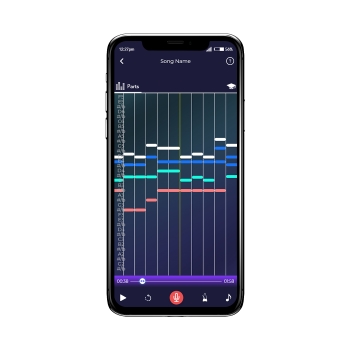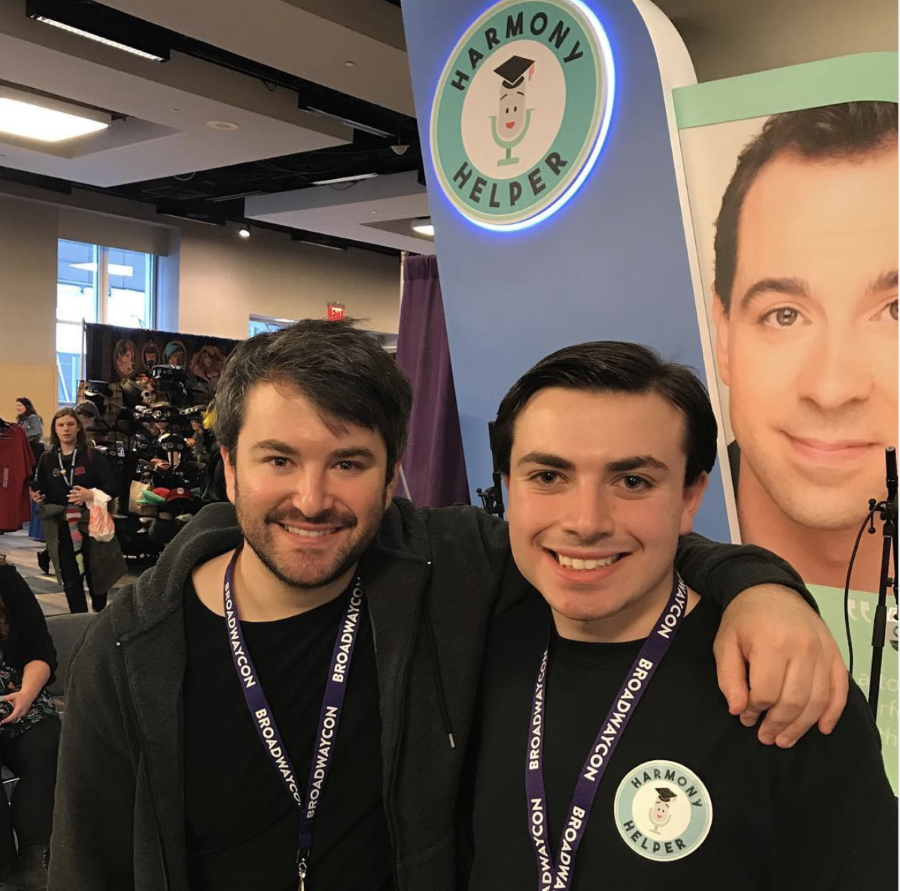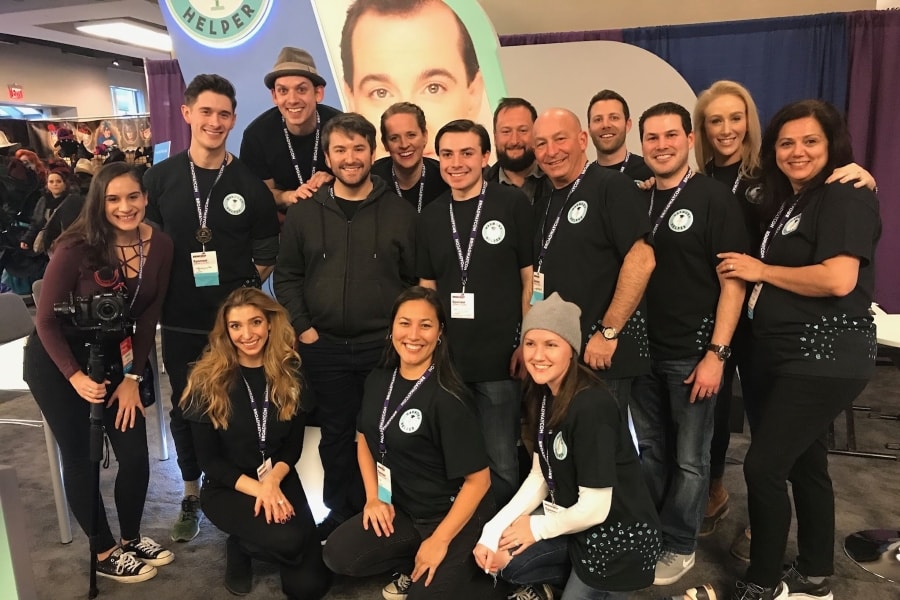CHALLENGE
To create an innovative app to help performers learn music
PLAN
To build an app with a library of songs that separates out vocal parts
WHAT WORKED
Building and creating an app with beta testing
WHAT NEEDS WORK
Promoting the app, building a full song library, incorporate testing
The Harmony Helper app was born of a stage disaster. Andrew Goren was just 13 years old when he booked his first professional theatre production, and his preparations for the musical—which featured an opening duet—fell apart at the open dress rehearsal. It wasn’t stage fright. Goren was equipped with a microphone and, for the first time, could hear his duet partner singing their harmony in his ear.
“I walked out onstage, opened my mouth, and I lost it all,” recalls Goren, now a sophomore at Drexel University in Philadelphia. “It was like I had forgotten how to sing, and that was devastating for me. I realized I had no idea how to harmonize.”
Goren started working on building the Harmony Helper app a few years ago with a team that has grown to include more than 40 designers and consultants, and a Chief Technology Officer. After several rounds of beta-testing, the app is slated to launch at the end of July.

Harmony Helper is designed for both beginners and experienced harmonizers. It claims to offer users a “24-hour rehearsal room in their back pocket,” says Goren. The app guides beginners through a five-step process that breaks down all the vocal parts, singles out a track, and gradually adds the harmonies back in after the user learns their own part.
Users don’t need to be able to read sheet music for Harmony Helper; vocal parts are displayed in varying colors and delineated lines. “We call it the great equalizer,” says Goren. “It doesn’t matter if you have a voice coach or an accompanist to teach you the music,” he says. “You can just pull out this from your back pocket, add your music, learn your song, and feel just as confident and prepared for whatever you’re rehearsing for.”
At this time, the app’s beta song library has just 7 public domain tunes, including “Happy Birthday” and “Star Spangled Banner.” Users can choose a song, select a voice part, and adjust volume controls for the parts, the metronome, and the accompaniment. Songs can be recorded and played back, and a proprietary algorithm provides users real-time feedback on harmonizing skills. When the full app launches, users will have the ability to upload PDFs or photos of sheet music or download songs through the app. Two subscription models will be available: An unlimited monthly subscription for $7.99 or an annual $75 subscription.

The concept for the Harmony Helper app was announced three years ago at BroadwayCon, an annual gathering of theatre fans, performers, and industry folks in New York City. “We came out first year just with a vision, some mockups, and wireframes, and the next year we came back with a proof of concept,” says Goren. The BroadwayCon community has been instrumental in beta-testing the app, offering feedback about the app’s usability and interface. “We really spent a lot of time making sure this process is as intuitive and familiar—just like a rehearsal process—so people don’t have to learn some new confusing technology,” says Goren.
This year Harmony Helper produced a tent-pole event at BroadwayCon, the Rising Star Singing Contest. Attendees, many clad in theatre-inspired costumes, performed 32-bar cuts of songs to accompaniment. Their performances were recorded and viewed by a group of celebrity judges, including Laura Benanti and Billy Porter. (The grand prize winner received tickets to Beetlejuice and a backstage tour from actor Rob McClure.) Aspiring stars and onlookers could interact with the app and learn about Harmony Helper at the BroadwayCon booth.
Other beta testers included students at the Paper Mill Playhouse’s conservatory programs, who learned all their music through the app last summer, and members of the American Choral Directors Association. The feedback from the development process led to the app’s ability to turn the accompaniment on or off, to more clearly delineate vocal parts, and an upgrade of the interface. Looking forward, there are plans to offer a subscription model designed for music directors, which will allow them to share music and voice parts with groups. Harmony Helper also plans to add a selection of choral music in the public domain to the app’s song library.
“Music directors have such little time to teach the music, and they are sitting there after rehearsal plunking out notes,” says Goren. “But now the cast members can learn the music on their own at home, come into rehearsal, and the music director can spend that valuable rehearsal time putting the finishing touches on the music.”
Goren’s ultimate goal is for the app to help other performers better prepare and avoid onstage mishaps—from theatre professionals to summer campers, from choir leads to shower warbling. Let the harmonizing begin.


